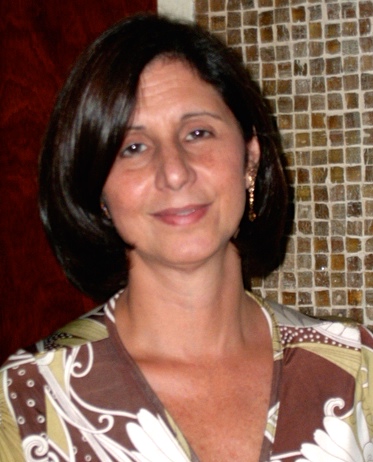 Support Venezuelan Democracy
Support Venezuelan Democracy
By María Teresa Romero
I believe the sanctions are a big help, especially for those democratic Venezuelans, which today make up the majority of the country. A regional government, the United States, has taken the sovereign decision, in accordance with its laws, to freeze the assets and deny entry to a group of Venezuelan government officials who are involved in corruption, human-rights violations, and international narco-terrorism.
This move provides the democratic Venezuelan opposition with ethical and moral strength and the courage to fight on. It bolsters the democratic principles of the opposition at a time when its principal leaders are being persecuted, imprisoned, and tortured. The Venezuelan people are currently under attack by their own government, and there is no internal justice system to defend them.
Moreover, it shows the democratic opposition in the country that they are not alone. While most Latin-American states provide nothing but silent complicity to a government that violates its own Constitution and even the OAS Democratic Charter, there is at least one regional government that will stand up for the Venezuelan people.
In a way, these sanctions even help the Chavistas themselves. Chavistas will come to understand clearly that justice awaits those who violate the law, even if on a limited scale through external legal mechanisms.
It would have undoubtedly been preferable that other regional and democratic nations joined the US government in imposing these sanctions, but this was not possible. Facing this weakness in current Latin-American governments and their lack of will, the US government was left with no other option than unilateral action against the Chavistas.
The Venezuelan government has long since used the United States as a scapegoat to support its anti-imperialist propaganda and mask its true neo-communist authoritarian nature and mismanagement.
Nevertheless, US sanctions against Venezuelan officials have benefited democracy, both in Venezuela and across the region. In time, these benefits will gradually become more apparent.
María Teresa Romero is a journalist with a PhD in political science, specializing in international politics. She’s a professor at the Universidad Central de Venezuela, a columnist in several Venezuelan and international newspapers, and the author of several books. Follow @mt_romero.
 Electoral Punishment
Electoral Punishment
By Carmen Beatriz Fernández
Español To understand international politics, it is essential that one understands local politics. Congressman Tip O’Neill (D-MA) is crediting for coining the phrase “all politics is local,” meaning that the most important opinion to a politician is that of his constituents.
It’s almost like the political equivalent of the business mantra “the customer is always right.” That said, I am convinced that President Barack Obama’s move to sanction Venezuelan government officials has more to do with US electoral politics than it does with Venezuela.
When Obama declared Venezuela an “unusual and extraordinary threat,” and singled out seven individuals to be sanctioned, he created a lot of buzz in the press. This was no accident. And to have done so just weeks prior to the OAS Summit of the Americas in Panama makes it seem all the more calculated.
The meeting would have featured Obama and Raúl Castro — new best friends — as its main protagonists. While a majority of US Americans appear to support the normalization of relations between the United States and Cuba, there is no doubt that the image of Obama and Castro side by side irritates significant electoral groups within the United States.
In the upcoming 2016 presidential elections, there is one segment, in fact, that is uniquely important: Hispanic voters. The party that conquers this voting bloc wins the presidency. Turning up the volume on the Venezuela issue, and focusing attention on the animosity with Nicolás Maduro, lessens the political cost of Obama’s newfound friendship with Castro.
In Venezuela, we are also approaching a parliamentary election, which could be the last major poll in the country for the next four years. The Venezuelan government now has Obama’s decree to use as its campaign platform.
The “struggle against the Empire” has been part of the official rhetoric in the country since Hugo Chávez’s time in office. Maduro tried to pick up where Chávez left off, but was met with very poor results. However, Obama’s decree now gives Maduro the opportunity to make those “imperialist threats” seem plausible.
The sanctions have allowed Maudro to shift the public’s attention to the “Evil Empire,” and away from the shortages, inflation, and rampant crime in the country.
Maduro’s years in office have been marked by a crumbling economy and the implosion of the “Revolution.” Things have gone so poorly that only two-thirds of Chavistas (themselves one-third of the country) also identified as Maduristas. Ofter Obama’s executive order, however, Maduro has been able to consolidate his base, gaining 75 percent of Chavista support.
Will the Obama effect become Maduro’s lifeline? Probably not. While Maduro has been able to unite Chavismo, the effect is unlikely to transcend beyond Chavista hardliners.
In the end, the time lapse between the sanctions and the elections — expected sometime in September or December 2015 — may prove too great for the “imperial threat” to hold its luster.
The Venezuelan people are beginning to see that there is a world of difference between the supposed existential threat of “the Empire” and the corruption within their own country.
Carmen Beatriz Fernández is an urbanist (USB), with masters in business administration (IESA) and electoral campaigns (University of Florida). Since 1997, she manages DataStrategia and coordinates the Iberoamerican political website e-lecciones.net. She is a founding member of the Organization of Latin American Political Consultants (OCPLA). Follow @carmenbeat.
 Versión Español
Versión Español




 Support Venezuelan Democracy
Support Venezuelan Democracy Electoral Punishment
Electoral Punishment







